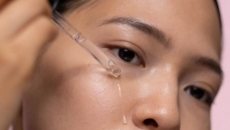In the pursuit of flawless and radiant skin, we often forget that skincare goes beyond just external applications. While topical products play a crucial role on the outer skin, nourishing our skin from within is equally important. This is where the power of rose-infused skincare comes into play, offering a remarkable boost to collagen synthesis and contributing to a healthy skin.
Roses, known for their enchanting beauty and captivating fragrance, have long been valued in skincare for their remarkable benefits. But did you know that roses are also rich in essential vitamins A and C? These vitamins are instrumental in boosting collagen production in the human body. What sets skincare with the essence of rose apart is its ability to combine the nourishing benefits of roses with other potent ingredients. These products often incorporate botanical extracts, antioxidants, and natural oils that work synergistically to enhance collagen production, promote skin elasticity, and provide deep hydration. Let's delve deeper into the skin benefits offered by rose-infused skincare:-
Rejuvenate and Firm Your Skin with Collagen
Collagen, known as the foundation of youthful skin, is a vital protein that contributes to skin elasticity, firmness, and a vibrant appearance. However, as we age, our natural collagen production starts to dwindle in our mid-to-late 20s and early 30s. We start losing 1 per cent of our collagen per year after that. This gradual decline in collagen levels leads to the formation of wrinkles, sagging skin, and a loss of radiance. But fear not, for rose-infused skincare comes to the rescue with its natural collagen-boosting properties. By incorporating rose skincare into your skincare routine, you provide your skin with the essential nutrients and botanical extracts that stimulate collagen production. This promotes the revitaliSation of your skin, helping to restore its firmness and elasticity. The result? A rejuvenated complexion that exudes youthfulness and radiance.
The Power of Vitamin A
When you incorporate rose products into your daily routine, you're not only indulging in the beauty of roses but also treating your skin to a potent blend of essential nutrients, including vitamin A, vitamin C, vitamin E, and vitamin B3. This incredible vitamin works wonders by promoting cell turnover and renewal, which means it helps your skin generate fresh and healthy cells. As a result, you'll notice improvements in skin texture, a reduction in the appearance of fine lines, and an overall healthier skin.
The Role of Vitamin C
Vitamin C plays a crucial role in collagen synthesis, supporting the skin's natural ability to maintain its firmness and elasticity. Acting as a powerful antioxidant, vitamin C shields the skin from harmful free radicals that can cause collagen breakdown and premature ageing. But that's not all-vitamin C also has the amazing ability to brighten the skin, fade dark spots, and even out skin tone, unveiling a more youthful and radiant skin.
How can you incorporate Rose into your skincare regimen
In addition to topical applications, consider exploring the world of ingestible skincare. Ingestible skincare refers to beauty products that are designed to be consumed, delivering essential nutrients and antioxidants directly to your skin from within. These products often come in the form of powders or liquids that you can easily incorporate into your daily routine.
It's a moment of self-care that allows you to indulge in the beauty of nature while reaping its rewards for your skin. Embrace the power of roses, harness the benefits of vitamins A and C, and witness the transformative effects on your skin. Let the beauty of roses guide you on a journey to a healthier, more youthful-looking skin.






